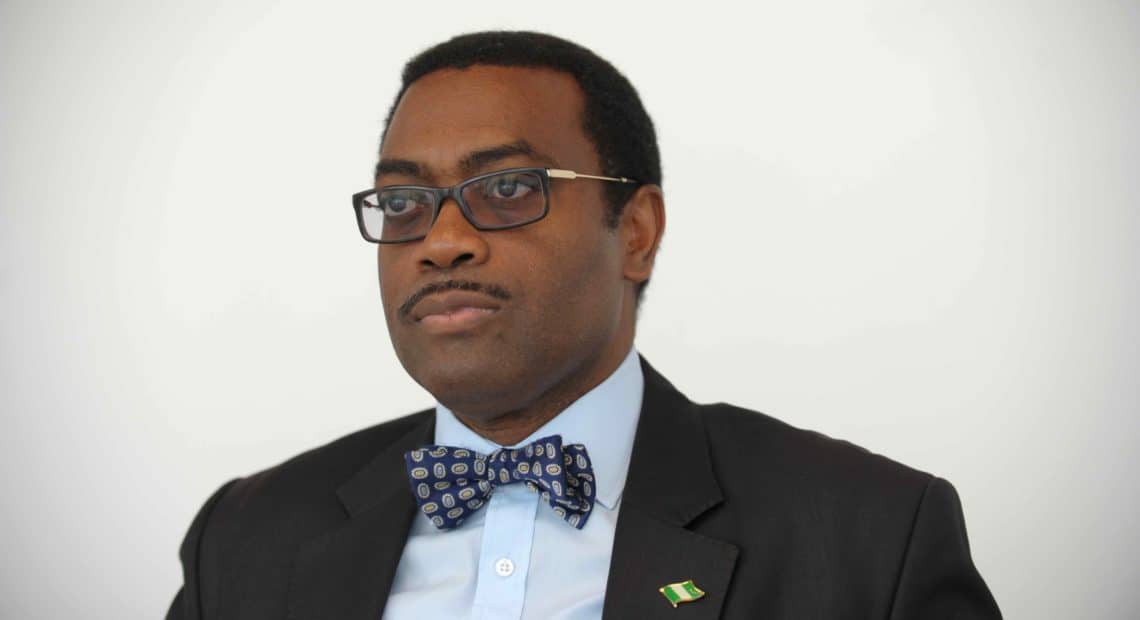NEWSMAN, Akure – President of the African Development Bank Group, Akinwumi Adesina, has stated that the system of government currently being practiced in Nigeria can be described as ‘fatherism’ and not federalism as expected.
Adesina who was the guest lecturer at the second inaugural lecture of Governor Rotimi Akeredolu in Akure, the Ondo State capital said that Nigeria’s system is essentially a revenue-sharing system.
He spoke on the theme “Towards a new Nigeria, From Federal Fatherism to a Commonwealth”.
According to him, states are “poor in the midst of plenty. They do not maximally explore or leverage what they already have in abundance.
“The federal system of monthly grants has paralyzed them “With stupendous resources, all concentrate at the centre, States are ever dependent on the centre. With the magnetic field of federal revenue allocations, states are constantly pulled, powerless into perennial dependency.
“This financial pilgrimage creates a sense of helplessness and overt dependency on the centre. State governors now spend more time in Abuja than they do in their own states, seeking the monthly ‘federal manna’.
“Like a pendulum, ever moving from side to side in constant motion, so too has this unfortunate dependency become seemingly unstoppable”, he revealed.
Adesina said ”The truth, however, is that to survive and strive, states must become financially independent of the center in Abuja. This is federalism of fiscal dependency. It is federalism that’s fiscally unhealthy for the states and the federal government.
“Because Nigeria depends on oil for over 70 per cent of government revenue, any decline in the price of oil creates fiscal and economic volatilities that reverberate across the states. What’s needed is greater economic and fiscal autonomy for the states.
”The issue is less about states or regional autonomy, but the financial and economic viability of Nigeria’s constituent states.
“lf Nigeria were to be a conglomerate firm, it would not be economically viable because 92 per cent of its constituent “subsidiary companies” are not viable without the support of the holding company. Nigeria’s federalism doesn’t grow its constituent entities. It simply makes them perpetual dependent.
“The Nigeria system is therefore not federalism… but “fatherism”, he noted.
He further explained the agitations for decentralization can be understood when viewed in the light of a craving for greater autonomy, Vanguard reported.
“But let us face it, political autonomy is meaningless unless it is backed by greater fiscal self-reliance at the state level “We tend to copy systems that are not well suited to our context.
”The United States that we copied from, does not control resources at the state level. Instead, the states generate the bulk of their income from taxes” Adesina stated.





